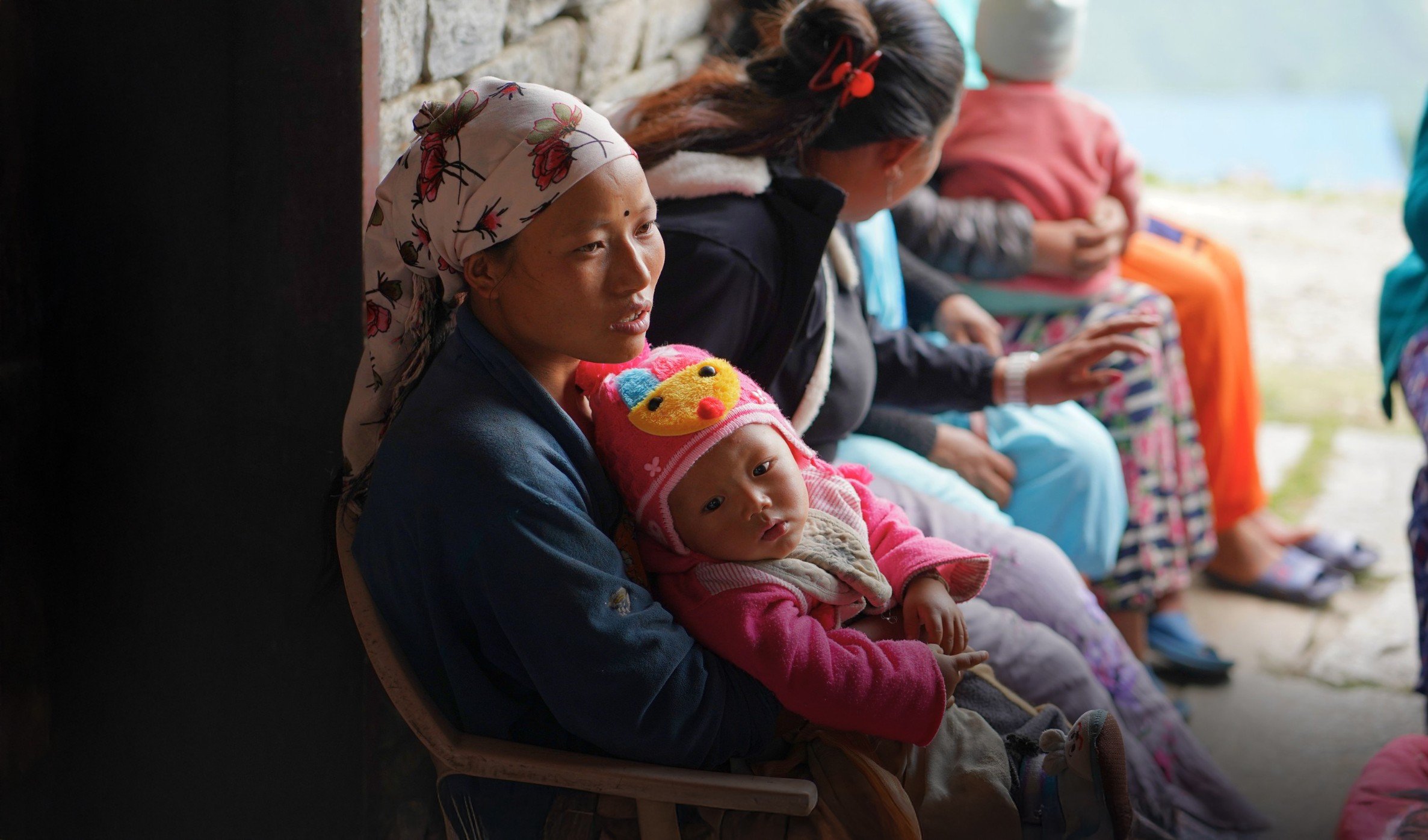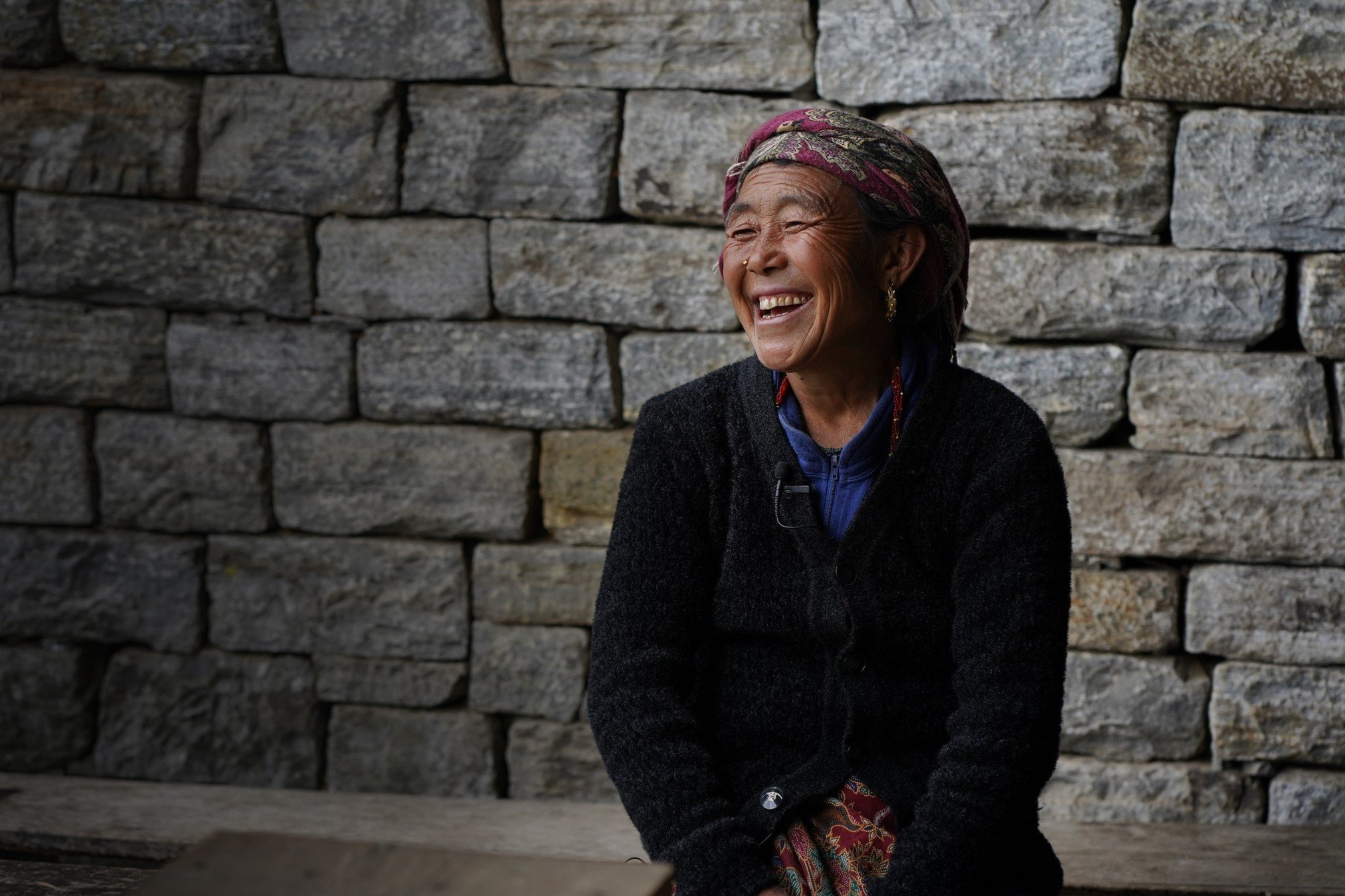
Health
Good physical and mental health provide a solid foundation for helping individuals and communities lead fulfilling and productive lives. Investing in health across the Himalaya is not just a matter of providing essential care—it's about bridging the gap and fostering resilience in often underserved communities.
Local context
Why we support health in Nepal
Access to medical care is especially challenging in remote areas of Nepal, where physical distance and limited motorable roads hinder people's ability to reach healthcare services. Availability of well trained healthcare staff and inadequate facilities continue to be significant obstacles.
We believe that quality healthcare should be available to everyone, regardless of their location. Our programs align with the UN Sustainable Development Goal 3 which is to ‘ensure healthy lives and promote well-being for all at all ages’. We particularly focus on promoting universal access to sexual and reproductive health-care services, including for family planning, information and education and aim to reduce maternal and child mortality rates.
Health
Nepal program
In partnership with Action for Nepal, we are working to improve the health of communities in Solukhumbu and Bahjang, Nepal, with a particular focus on services for women and children.
In addition to our generous donors, this program is supported by the Australian Government through the Australian NGO Cooperation Program (ANCP).
What we support
-
We ensure women have access to sexual and reproductive health services, including ante-natal and postnatal care, and receive information to look after themselves and their babies. We bring services closer to the community by supporting outreach and home services. Additionally, we are piloting a telehealth program to offer expert consultations in remote areas of Nepal.
-
We provide local government representatives and health facility management committees with the skills, knowledge, and resources needed to effectively run health programs and ensure robust governance for the sustainable management of health services and facilities.
-
Our programs support healthcare workers and train them in key areas like sexual and reproductive health, infection prevention, and disaster risk reduction. We strengthen the capacity of health staff and female community health volunteers, boosting their ability to provide services and share essential information on reproductive, maternal and child health with the community.
-
We are committed to delivering quality health services by ensuring that medical supplies and equipment are available at health centres. Where possible, we partner with the local government to build or rebuild health facilities.
-
We equip teachers with skills to recognise and escalate emotional and psychological distress so as to provide mental health support for students facing challenges.
Nepal health program stats from the last year
-

150
Items of equipment for delivery, neonatal care and reproductive health were provided in 7 health facilities in West Nepal
-

98%
Of all births in our Solukhumbu program take place in health facilities with skilled attendants (9% two years ago)
-

1,420
People benefited directly from the Solukhumbu Women's Health Project

Health in the Himalaya
Support AHF to supply essential medical supplies and equipment and provide training to healthcare workers in primary health, maternal and child health and emergency medical care.
Local context
Why we support health in Bhutan
Mental health care in Bhutan is fraught with challenges, including a shortage of mental health professionals, limited access to psychiatric and therapeutic services and the absence of mental health legislation.
The situation is further complicated by cultural factors, high rates of alcoholism, and domestic violence, which amplify the need for support. Additionally, stigma surrounding mental health treatment and the lack of nuanced vocabulary in the Bhutanese language make it difficult to address mental health issues effectively.
Health
Bhutan program
Our health work in Bhutan focuses on improving the wellbeing of children and young people (particularly girls) who have experienced violence, abuse or neglect - ensuring they have access to support as well as being able to continue their education.
In partnership with RENEW (Respect, Educate, Nurture and Empower Women), we support the professional development of counsellors specialising in trauma management and provide regular child protection training for our program stakeholders.
Local partners
Action for Nepal is a non-profit organisation bringing access to quality health, education and clean drinking water to people in remote communities of Nepal.
RENEW (Respect Educate Nurture & Empower Women) is dedicated to the relief and empowerment of disadvantaged women and adolescent girls in Bhutan.
From the field
Health Stories
Other AHF programs












